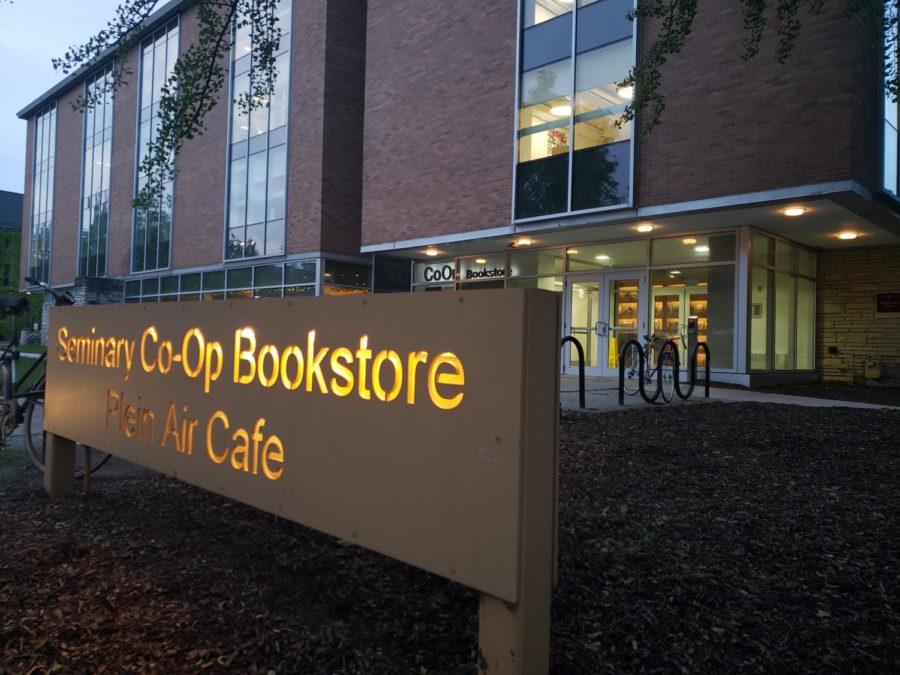Law School Professors Geoffrey Stone and David Strauss spoke at the Seminary Co-Op on Monday night about their new book Democracy and Equality: The Enduring Constitutional Vision of the Warren Court published in January.
Democracy and Equality considers the critical and lasting impact that the Supreme Court under Chief Justice Earl Warren had on American politics from 1953–69, when it presided over many important cases pertaining to civil rights, among other themes such as criminal justice and free speech.
Strauss began the conversation by putting forth several examples of the Warren Court’s legacy, such as the end of legal racial segregation in schools (Brown v. Board of Education), the legalization of interracial marriage (Loving v. Virginia), and the right to legal representation (Gideon v. Wainwright).
Both acknowledged that the Warren Court is often remembered for its practice of judicial activism, the imposition of political opinions in cases that are strictly constitutional and judicial matters. However, Strauss and Stone pushed back against the narrative that alleges the Warren Court acted unconstitutionally.
“Conservatives in particular have viciously attacked the Warren Court as a result-orientated liberal set of justices imposing their own political value judgements on the nation, without any legitimate constitutional justification for doing so,” Stone said. “That, in my own view, is completely inappropriate and wrong.”
Stone explained that judicial review and the Court’s power to overrule decisions made by Congress exists to correct the “inevitable abuses of authority” by the majorities in democracies. “Majorities are often intolerant of and hostile to outsiders,” Stone said, referring to groups such as African Americans, women, and people accused of crimes.
Democracy and Equality argues that the court was, in fact, very effectively serving its constitutional purpose by protecting minority groups from unconstitutional legislation passed and implemented by the majority.
“The Warren Court was extremely aware of and sensitive to that responsibility,” Stone added.
“They [the majority] basically don’t identify with those groups and those individuals, and they are likely to be much more comfortable denying rights to those individuals that should be in fact afforded to them,” Stone said.
Strauss explained that “a central unifying theme of the Warren Court was to combat a regime of racial apartheid” in America.
“What [the Warren Court] saw when they looked at America was a group that is being treated as less than human and is not being allowed to protect itself in the way that groups in democracies ought to be allowed to protect themselves, which is by speaking, organizing, and voting,” Strauss said.
Strauss claimed that the Warren Court was the only branch of government to effectively advance civil rights in the 1950s, when “Congress was frozen by a filibuster and the executive branch was not moving very quickly.”
“You don’t want to overstate the extent of racial progress in this country, but by the end of the Warren Court’s tenure 50 years ago the world looked completely different,” Strauss said.
Strauss and Stone also discussed the state of the Supreme Court today and how they think it compares to the Warren Court.
“On the current court there is a group of justices—I think all five of the current Republican-appointed justices—who basically are not in favor of judicial restraint but are in favor of judicial activism, when that suits their fancy,” Stone said referring to Justices Samuel Alito, Neil Gorsuch, Clarence Thomas, Brett Kavanaugh, and Chief Justice John Roberts.
Stone noted that today’s court has struck down things like the constitutionality of the Voting Rights Act. “The thing about those activist decisions is that they’re completely antithetical to what [Strauss] and I describe as the enduring constitutional vision of the Warren Court. They’re not about correcting democracy; they’re not about protecting minorities. They’re about fundamentally enhancing the power of their people [Republicans],” Stone said.










